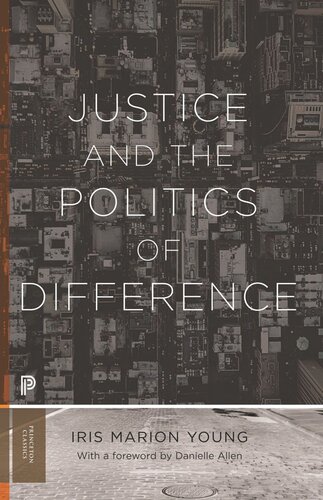

Most ebook files are in PDF format, so you can easily read them using various software such as Foxit Reader or directly on the Google Chrome browser.
Some ebook files are released by publishers in other formats such as .awz, .mobi, .epub, .fb2, etc. You may need to install specific software to read these formats on mobile/PC, such as Calibre.
Please read the tutorial at this link: https://ebookbell.com/faq
We offer FREE conversion to the popular formats you request; however, this may take some time. Therefore, right after payment, please email us, and we will try to provide the service as quickly as possible.
For some exceptional file formats or broken links (if any), please refrain from opening any disputes. Instead, email us first, and we will try to assist within a maximum of 6 hours.
EbookBell Team

0.0
0 reviewsIn this classic work of feminist political thought, Iris Marion Young challenges the prevailing reduction of social justice to distributive justice. It critically analyzes basic concepts underlying most theories of justice, including impartiality, formal equality, and the unitary moral subjectivity. The starting point for her critique is the experience and concerns of the new social movements about decision making, cultural expression, and division of labor--that were created by marginal and excluded groups, including women, African Americans, and American Indians, as well as gays and lesbians. Iris Young defines concepts of domination and oppression to cover issues eluding the distributive model. Democratic theorists, according to Young do not adequately address the problem of an inclusive participatory framework. By assuming a homogeneous public, they fail to consider institutional arrangements for including people not culturally identified with white European male norms of reason and respectability. Young urges that normative theory and public policy should undermine group-based oppression by affirming rather than suppressing social group difference. Basing her vision of the good society on the differentiated, culturally plural network of contemporary urban life, she argues for a principle of group representation in democratic publics and for group-differentiated policies.
Danielle Allen's new foreword contextualizes Young's work and explains how debates surrounding social justice have changed since--and been transformed by--the original publication of Justice and the Politics of Difference.